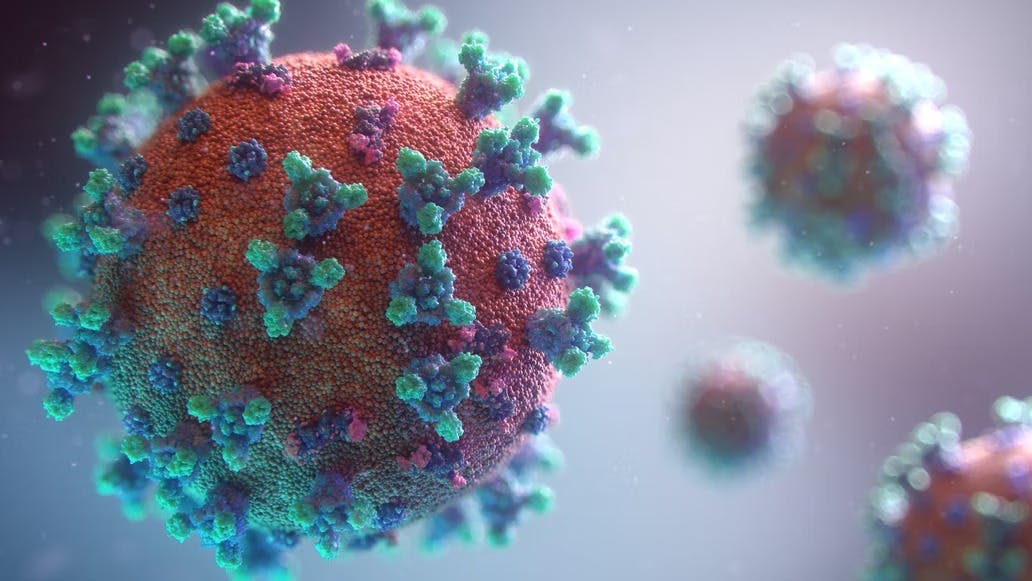Background
With recurrent cases of COVID-19 experienced by most individuals, the question remains, how effective are vaccines and their subsequent boosters? We see what researchers from one of the most prominent healthcare institutions, King College London (KCL), have determined through data analysis of study groups and community feedback.
The ZOE COVID study
On March the 24th 2022, KCL launched an application in partnership with Zoe Global Limited - a health science company - called the ZOE COVID study app. The application now has over 4 million users, making it the largest global ongoing study into the virus. The application-acquired data from more than 60,000 participants between May 2021 and November 2021 led to fascinating insights into the efficacy of the Pfizer, AstraZeneca and Moderna vaccines. The study found that there was substantial waning immunity against COVID-19 infection 5-8 months after the second dose of the initial vaccination programme (referred to as the “Primary series”). Out of the three vaccination programmes, the Moderna – an mRNA vaccine - seemed to provide the highest effectiveness 5 months post 2nd dose, scoring in at 84.3% efficacy against the virus. Pfizer – also an mRNA vaccine - followed closely, with efficacy estimated at 82.1%, and AstraZeneca - a Non-Replicating Viral Vector vaccine - trailed behind with an efficacy of 75.7%. The research also highlighted a steeper decline in effectiveness in individuals aged over 55. The question on everyone’s mind, however, how did this fare up against the unvaccinated? The researchers used a control group of unvaccinated individuals (which took into account variables such as gender, age and racial background), and found that when compared to physiologically similar individuals, those who had not undergone a vaccination programme were potentially at 91.6% higher risk of contracting the virus when comparative to individuals who had received the Pfizer vaccine.
The relevance of boosters
What about boosters? Where do they fit into the equation? And do they have any significance in this battle? The same study group found that in the 3 months following the 5-month milestone, vaccine effectiveness had declined by 6.4% (in the case of the Pfizer vaccine). For the same study group vaccine effectiveness for booster doses in 0–3 months after primary vaccination was higher than 92·5%. So it seems vaccine boosters also work.
COVID-19 mortality rates
Reinfection rates are one thing, what about death rates? Has this improved since the vaccine rollouts? The answer is an irrefutable yes. Official COVID-19 mortality data from around the world has corroborated finding such as those from the American Centres for Disease Control (CDC), which demonstrated that unvaccinated people 12 years and older had 17 times the rate of COVID-associated deaths, when compared to people vaccinated with a primary series and a booster dose. This rate gap was more pronounced in patients over 65 years of age, with 9.29 deaths per every 100, 000 unvaccinated individuals.
Reinfections in the vaccinated population
So, if vaccines are helping, why are we all becoming reinfected? I myself have contracted the virus twice in the space of 6 months. Not, because I have no sense of COVID-19 infection prevention and control or a naturally “weak” immune system, but rather because this is in line with peaks of infections caused by COVID-19 variants. The truth is, these were expected and termed early on as “Vaccine breakthrough infections”. The common misconception here is that vaccines do not always provide the immune system with the means to prevent infection, but mortality/symptom data has proven that they do markedly reduce the manifestations of the infection, namely the severity of symptoms which lead to higher hospitalisation rates. This explanation may seem unsatisfactory to the pessimist, but the optimist, and in the case of most readers, the realist, will understand that vaccines were never meant to be a panacea but rather a means of damage control. This is a re-frame that provides a great degree of reassurance for the future, if not some small degree of patience when breakthrough infections occur.
Setbacks and future prospects in data acquisition
Where do we go from here? Vaccines work, there is no doubt about that. The virus, however, also works in terms of mutating its structure to make itself more transmissible (as in the case of the Omicron and Delta variants) and adapting in ways we have only seen in viruses that have existed since the dawn of man. The “Living with COVID-19 plan” is all well and good, but are we simply sweeping the matter under the proverbial rug? Funding for the aforementioned ZOE COVID-19 study has already been pulled by the UK Health Security Agency (UKHSA) responding to public qualms about the matter with an official statement declaring that they have “reviewed existing surveillance programmes to maximise effective investment and remove any duplicative outputs. Moving forward, we will therefore no longer be funding a number of studies, including the ZOE Study.” This seems highly counterintuitive to the resilience of the Government’s epidemiological data afforded by such studies, data which has proven invaluable to scientists attempting to decipher the best course of action for booster administering timescales. But don’t fret, scientists, like the virus, are also great at adapting. For example, the German-led pilot project for COVID-19 detection in wastewater (yup, that’s right, sewage), elucidated a new possible strategy for an early detection system, with promising results.
Conclusion
Vaccines and their concomitant boosters are working, for both reinfection and mortality/morbidity rates. There is still a significant amount of work needed for statistically viable data to determine how well they are working, with almost every academic source stating the same caveat of insufficient data. More investment into global studies and participation from the public is needed to answer our next question, with everything the virus is throwing at us, how long will vaccines continue to work?
Written by Sadakat Syed.
